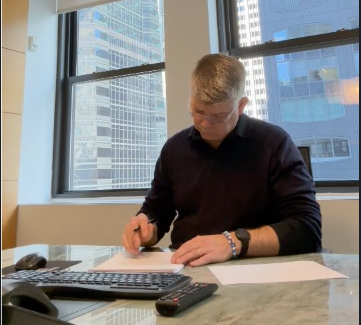What to Expect When You List in NYC: A Step-by-Step Roadmap
- Sean Turner
- Nov 16, 2024
- 2 min read
Updated: Oct 15
Selling an apartment in New York City is a complex process, and while most sellers are prepared for the basics—like cleaning, decluttering, and setting a price—there are several important factors that tend to surprise even seasoned property owners. Here are some often-overlooked aspects to be aware of to ensure a smooth and successful selling experience.
1. Timing and Market Nuances
New York City’s real estate market is unique. Market timing can vary drastically even by neighborhood, so what worked for your friend in another borough may not be best for you. NYC has seasonal shifts—spring and fall tend to see more buyer activity, while winter and summer can slow things down. Understanding the right season to list and the nuances of local demand can impact both the price and the speed of your sale.
2. The Importance of Staging
Many sellers think staging is only necessary for vacant units, but in a market as competitive as NYC, every edge counts. Proper staging highlights the apartment's best features and can make a space feel brighter and more welcoming. Many buyers make judgments from photos alone, and professional staging can often be the difference between a quick sale and months on the market.
3. The Disruption of Showings and Minimizing Them
Once your apartment hits the market, be prepared for frequent showings. These showings can be inconvenient, particularly for those living in the property. To minimize disruption, consider setting boundaries with your agent on viewing times. For example, consolidating showings to certain days of the week or specific time blocks can help you maintain a routine and reduce interruptions. Additionally, hosting an open house can attract multiple buyers at once, allowing you to keep your space private more often. Clear communication with your agent is key to balancing exposure with your need for privacy and convenience.
4. Preparation for Board Approval
If your apartment is in a co-op, the board approval process adds an extra layer of complexity. Boards can be notoriously picky, and many sellers underestimate the extent of information required from buyers. Be prepared for additional time and paperwork, and know that a rejected board package can delay the sale indefinitely. Cooperating with a buyer who is familiar with board requirements, or has a strong financial profile, can make the process smoother.
5. The Role of Negotiations
Negotiating in NYC isn’t for the faint of heart, and every dollar counts in a high-stakes market. Unexpected negotiation points often arise—whether about closing dates, appliances, or repairs. Having a certified negotiation expert (like myself) can help you maximize your sale price and avoid surprises.
6. The Financial Implications
Selling in NYC isn’t just about pocketing your sale price. Taxes, including capital gains tax and the NYC-specific mansion tax, can significantly reduce your profits. Additionally, most sellers must cover their closing costs, attorney fees, and brokerage commissions. Understanding these costs upfront is key to managing expectations and avoiding disappointment when you see the final numbers.
Selling your NYC apartment is an exciting venture, but it’s also a process where the details matter. By addressing these often-overlooked factors early on, you’ll set yourself up for a smoother sale and a more rewarding outcome.




